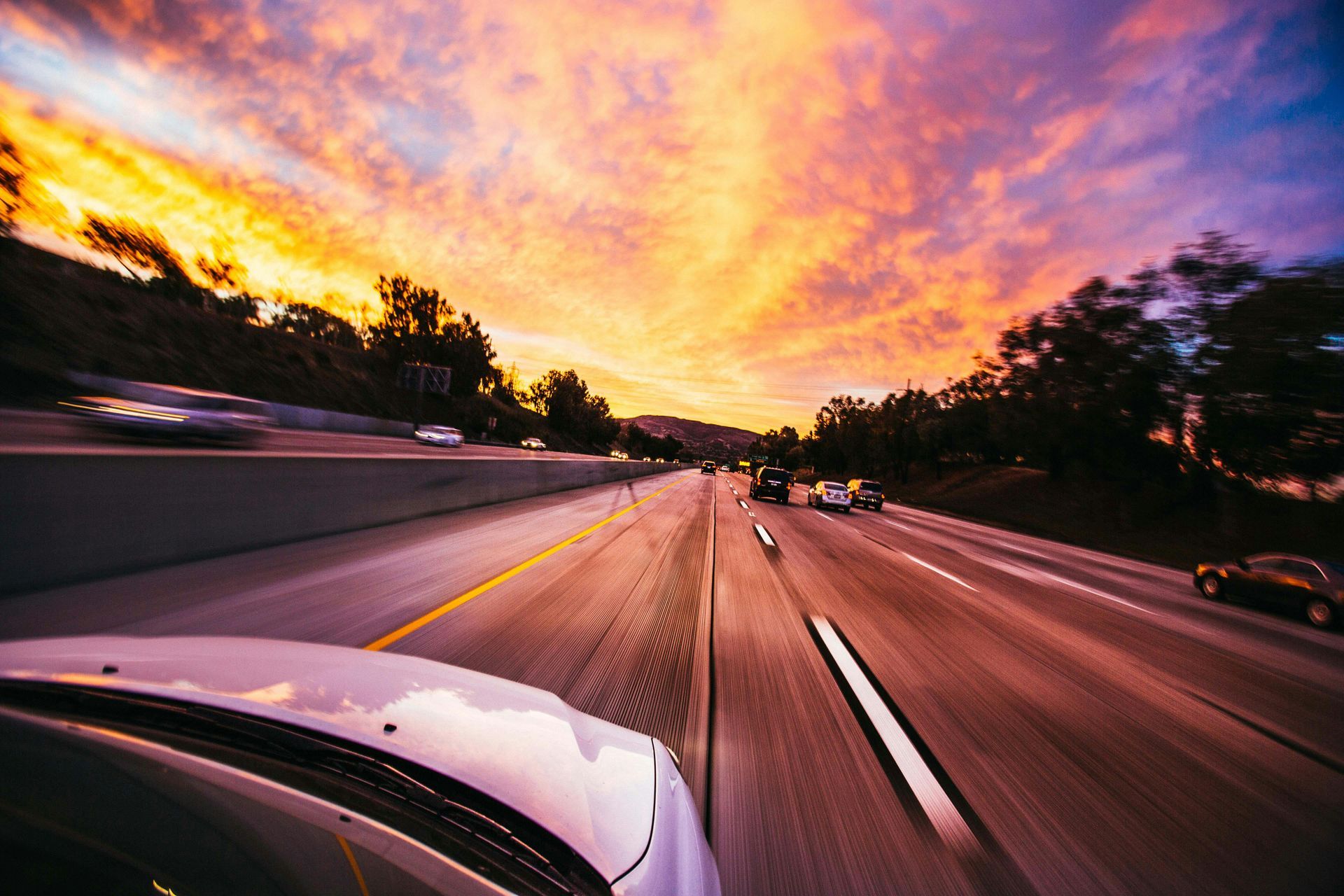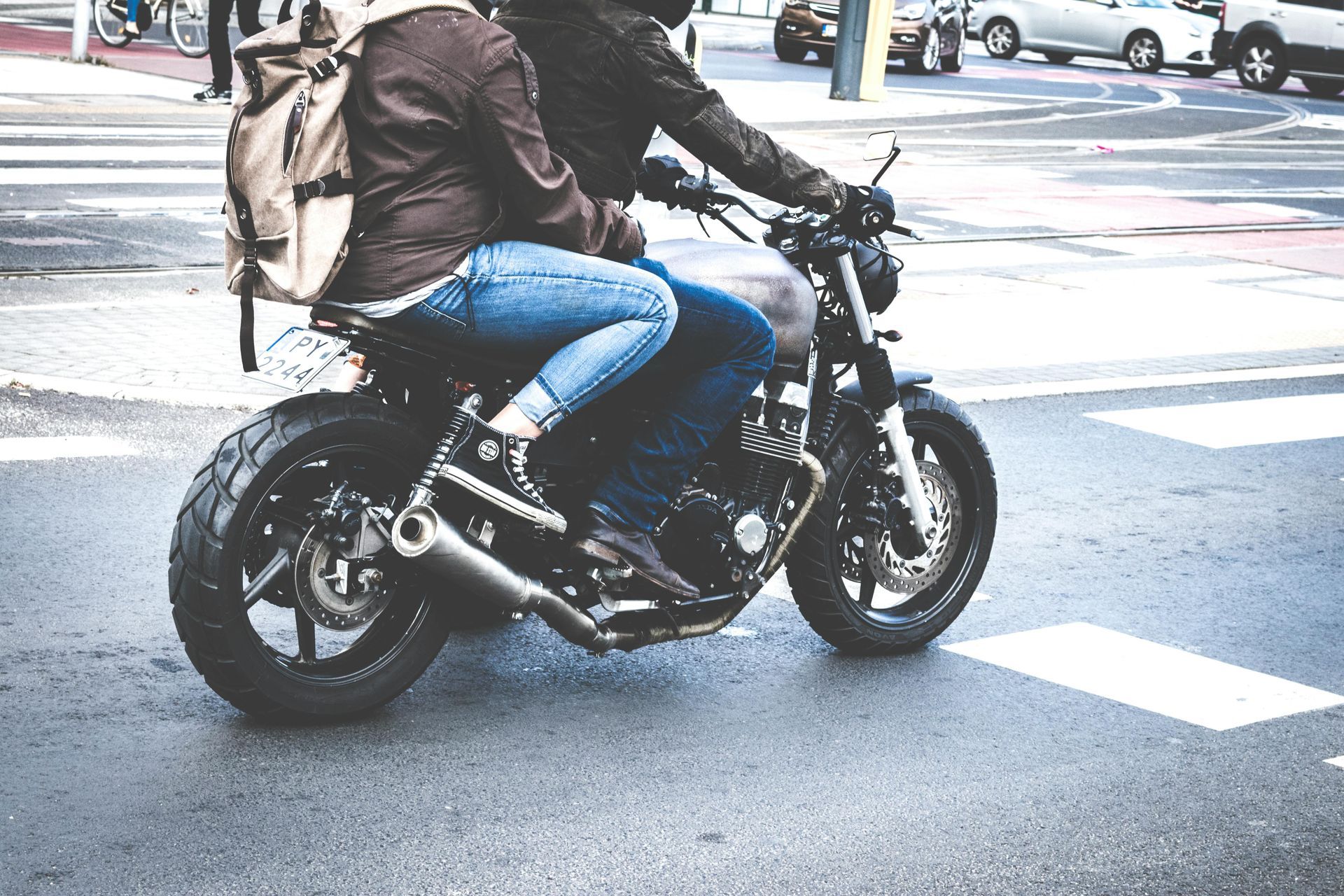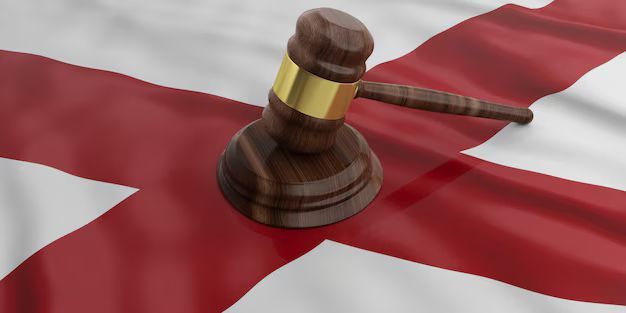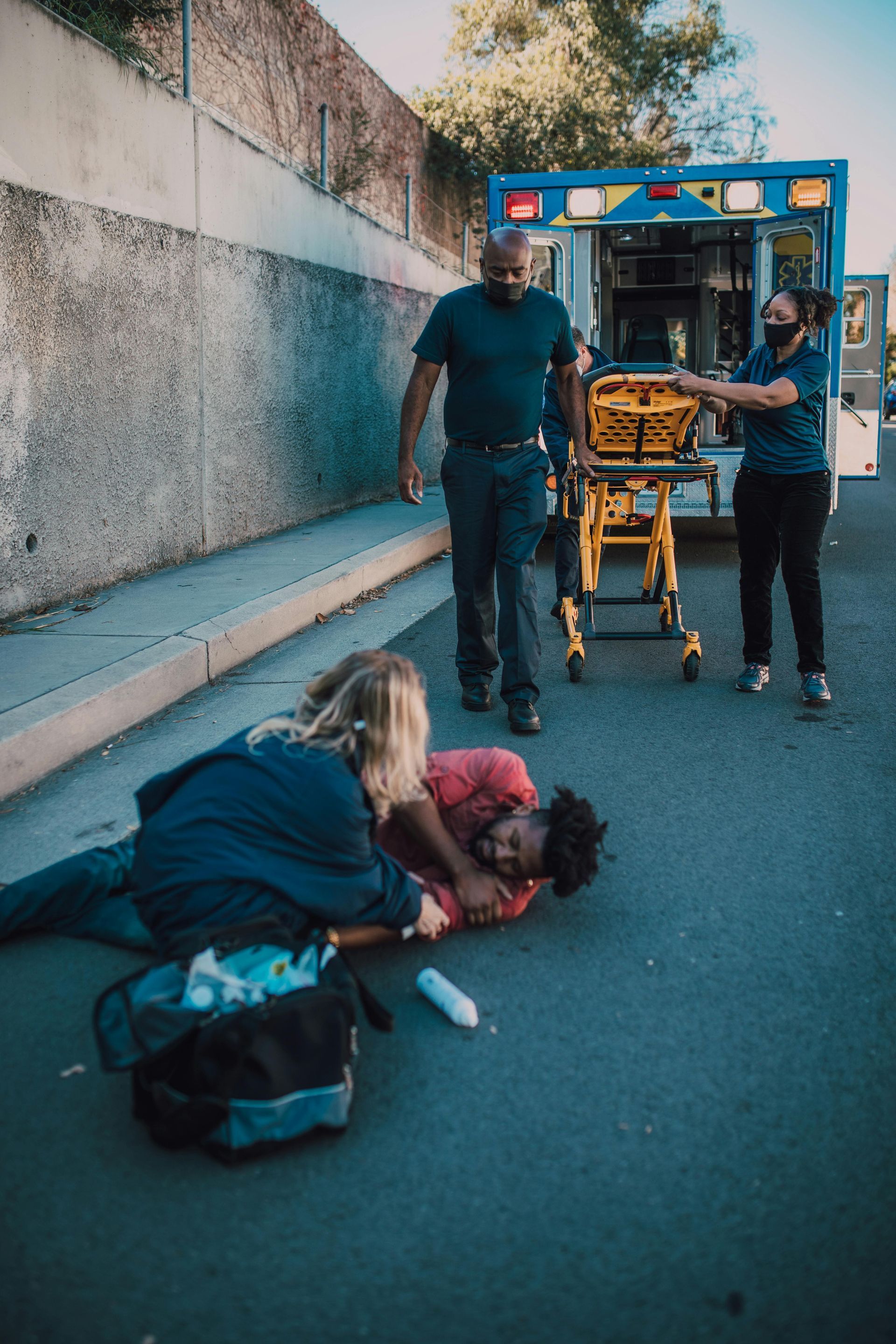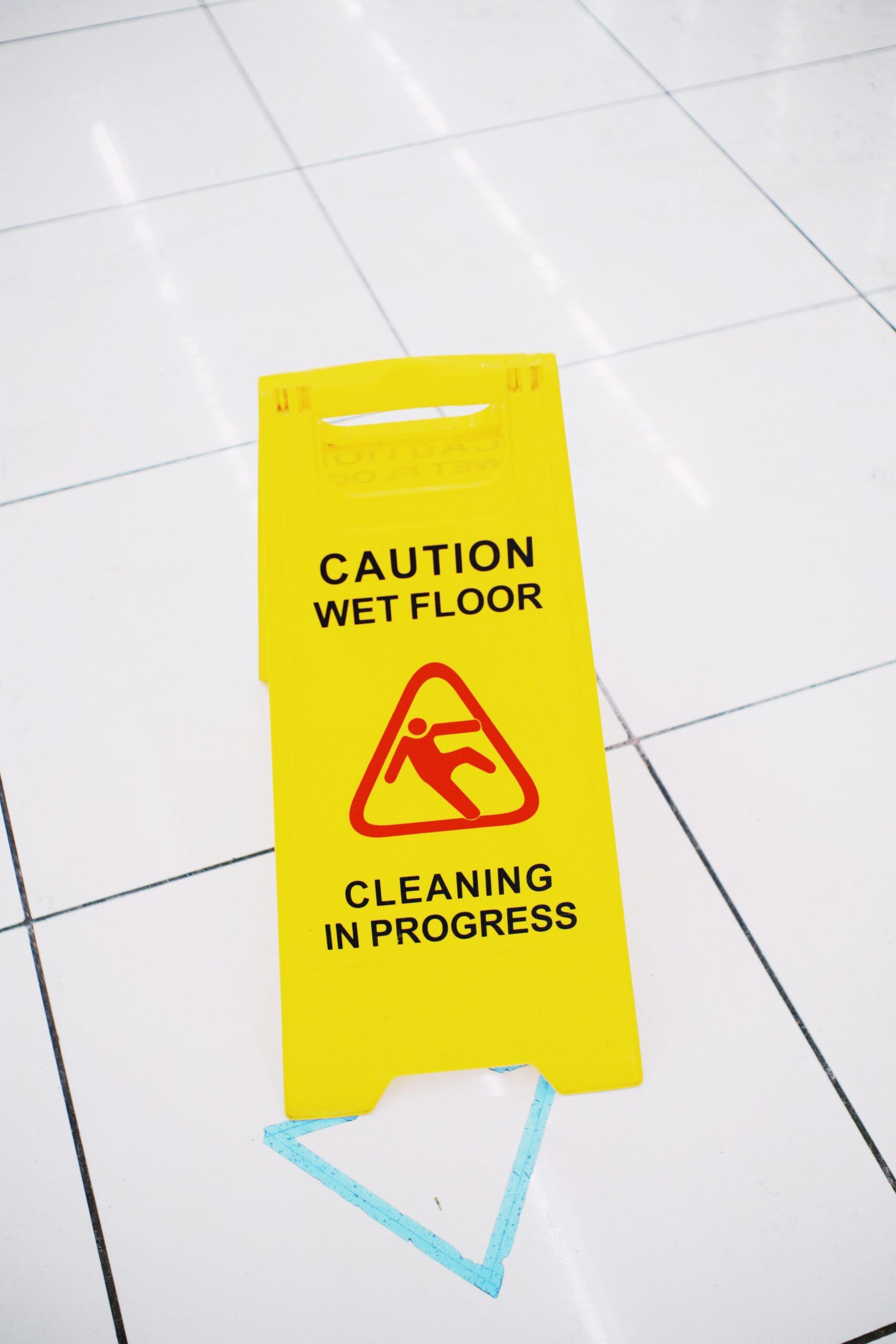What to Do After a Motorcycle Accident in Alabama: A Step-by-Step Guide
What to Do After a Motorcycle Accident in Alabama: A Step-by-Step Guide

A motorcycle crash can turn life upside down in seconds. Between injuries, bike damage, and insurance headaches, it’s hard to know what to do first—especially under Alabama’s strict contributory negligence rule. This guide walks you through the exact steps to take after a motorcycle accident to protect your health, your rights, and your claim.
If you need help now, the motorcycle accident lawyers in Mobile, Alabama at Steele Ritchie LLC are ready to talk.
1) Get to Safety, Call 911, and Stay Calm
Move yourself (and your bike if safe) out of traffic to avoid a secondary impact. Call 911 so there’s an official report and first responders can evaluate injuries. Even if the other driver is apologetic and suggests handling things “off the books,” insist on a police report—it’s a key document for your claim.
Tip: Tell the dispatcher if fuel is leaking or debris is blocking the road.
2) Accept Medical Care—even if You “Feel Fine”
Adrenaline masks pain. Motorcycle crashes commonly cause concussions, internal injuries, and soft-tissue damage that show up hours or days later. Get checked on scene and follow up at urgent care or with your doctor. Your medical records form the backbone of your claim.
Keep everything: discharge papers, prescriptions, imaging, bills, and receipts for over-the-counter meds and braces.
3) Document the Scene Like an Investigator
Use your phone to capture what you’ll forget later:
- Your bike (all angles), helmet, and riding gear (don’t throw anything away)
- The other vehicle(s), license plates, and visible damage
- Skid marks, road hazards, potholes, loose gravel, missing signage
- Traffic signals, weather, and lighting conditions
- Injuries (photos over time help show progression)
Ask witnesses for names, phone numbers, and short voice memos if they’ll do it. Politely request nearby businesses not overwrite video—note camera locations so your lawyer can formally request footage.
4) Exchange Information—But Don’t Argue Fault
Swap names, phone numbers, driver’s license numbers, and insurance details. Keep your conversation short and factual. Don’t admit fault or apologize—insurers can twist casual comments into “admissions.”
5) Report the Crash to Your Insurer
(Carefully)
Notify your carrier promptly to preserve benefits like UM/UIM (uninsured/underinsured motorist) and MedPay. Provide the facts only. Decline recorded statements to any insurer—including your own—until you’ve spoken with an attorney. Statements can be used to shift even 1% of blame onto you.
6) Preserve Physical Evidence
Do not repair or dispose of your motorcycle, helmet, jacket, gloves, boots, or damaged personal items yet. These can prove impact forces, angles, and defect or failure. Store them in a dry place. Keep a running log of pain levels, sleep disruption, emotional effects, and missed work.
7) Track All Losses From Day One
Build a simple file (or spreadsheet) for:
- Medical bills, copays, mileage to appointments
- Time missed from work and any HR letters
- Out-of-pocket costs (towing, bike storage, rental, gear replacement)
- Home help you had to hire because of injuries
This documentation helps your lawyer quantify damages beyond the obvious repair bills.
8) Alabama’s Contributory Negligence: Why Tiny Mistakes Matter
Alabama follows contributory negligence, meaning if an insurer can pin even a small percentage of fault on you, they may try to deny the claim outright. Expect arguments like: you were “lane splitting,” speeding slightly, or could have braked sooner. A strong factual record—photos, witnesses, medical documentation—helps your lawyer keep blame where it belongs.
For more on protecting your claim, see our personal injury overview.
9) Hit-and-Run or Uninsured Driver? Don’t Give Up
If the at-fault driver flees or carries only minimum coverage, your UM/UIM benefits may step in. But you must report promptly and meet notice requirements. A lawyer can help you navigate these deadlines and coordinate coverage so you’re not leaving money on the table.
10) Common Causes—and the Evidence That Proves Them
- Left-turn crashes: Drivers misjudge a rider’s speed/distance. Intersection video, dashcams, and witness angles matter.
- Unsafe lane changes: Look for mirror angles, blind-spot excuses, and turn-signal data if available.
- Road hazards/defects: Photos with measurements, 911 call logs, prior complaints to city/county can be key.
- Dooring and parking-lot collisions: Camera footage and point-of-impact analysis help reconstruct the event.
Your attorney may use accident reconstruction experts to explain physics, speed, and causation when insurers dispute fault.
11) Don’t Talk Settlements Until You Understand the Full Picture
Early offers are designed to close your case before you know the true cost of your injuries. Serious motorcycle injuries often involve follow-up imaging, specialist care, injections, or surgery. Settling too soon can leave you paying for future care out of pocket. Let a lawyer value all damages—medical, wage loss, future care, and non-economic harms.
12) How a Motorcycle Accident Lawyer Helps
A focused legal team will:
- Secure video before it’s overwritten
- Interview witnesses and first responders
- Coordinate your medical documentation and prognosis
- Evaluate UM/UIM, MedPay, and all available insurance layers
- Counter “blame-the-rider” defenses with facts and expert analysis
- Negotiate aggressively—and go to court if that’s what it takes
Start by reviewing our page on Motorcycle Accidents in Mobile, Alabama to learn how we approach these cases.
When to Call Steele Ritchie LLC
If you’ve been hurt in a motorcycle crash anywhere in Mobile or Baldwin County, timing matters. Evidence disappears, and insurers move quickly. We’ll step in to protect your rights and handle the heavy lifting so you can focus on healing.
- Explore our motorcycle accident practice page
- Read more about our personal injury representation
- Or contact us now for a free consultation
No fees unless we win. We’re here to help you get back on the road—and back to your life.

